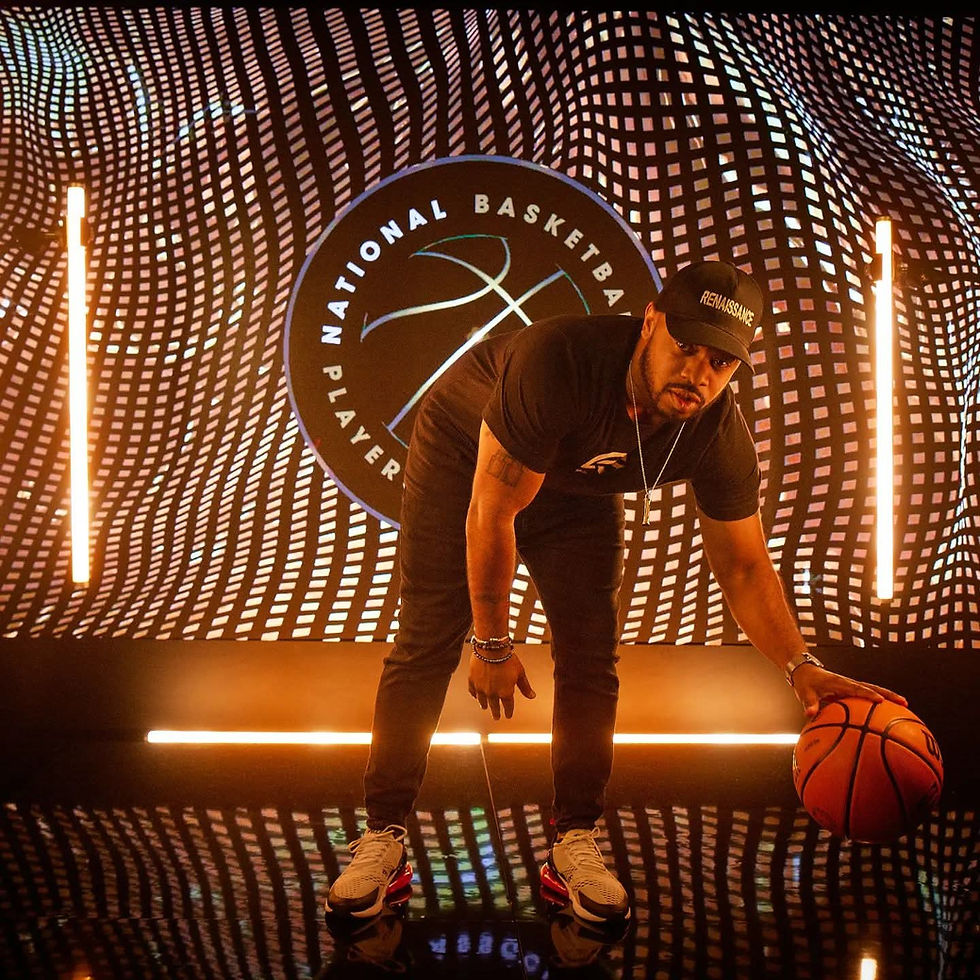Jacki Gemelos: Sports Agent & Vice President of Talent Representation | Disrupt The Game
- The Ballers Magazine

- Apr 30, 2024
- 12 min read

Community, selflessness, and passion. Three things that continue to fuel Jacki Gemelos on her journey as a sports agent and talent representative, and ones that remain at the forefront of her mind throughout all of her endeavors. For this Stockton, California native though, it all started when she picked up a basketball at the age of seven years old and fell in love with the game. A love that, in the years to come, led her to foster an incredible personal legacy. From playing at both the collegiate and professional levels to coaching in the WNBA to working with one of the leading sports brands in the world, Jacki embarked on a series of adventures throughout her time in the industry that inched her closer to the current chapter of her life as a sports agent. "Being an agent is my calling...That's where I’ve found the ultimate passion for me outside of playing basketball—in making a difference in (players') lives," emphasizes Jacki when discussing her transition into the world of athlete management and representation. As she reflects on her role now as Vice President of Talent Representation at Disrupt The Game, Jacki highlights the joy and fulfillment she finds in providing clients with the best representation; and her commitment to helping them find success in their ventures both on and off the court. Truly inspiring!
Take us all the way back! When did you discover your passion for basketball and interest in pursuing a career in the game one day?
Yeah! In 1998—I would have been like 10 years old—I was at a Sacramento Monarchs game. Sacramento had a WNBA team then and I watched them. They were about 30 minutes from my house and that's back when Ticha Penicheiro was playing there, Yolanda Griffith, and a ton of great players. Ticha Penicheiro was my favorite player growing up. Me and my dad got called in the audience to come out at halftime and if I made six free throws in less than a minute, I got a $500 (prize), a Monarchs’ bag, a water bottle, and a t-shirt or something. We agreed to do it and then I went out there at halftime. I missed my first shot and then I just swished the next six. There were like 15 seconds left on the clock and I did it. From that moment on, I just remember getting a standing ovation and everyone clapping for me. I just said, “I'm going to be in this league one day. This is now my dream: to be in the WNBA.”

Love that! Throughout your time in high school, at Saint Mary's, you had an incredible career as well. You were a McDonald's All American, you were named Miss Basketball of California, you scored over 3,000 career points throughout your time there. What did achieving those milestones and earning those honors mean to you?
Those were huge, monumental milestones in my career. For me, all I wanted to do was win basketball games and if I had to score a ton of points and do certain things in order for us to win, then I made sure I tried my best to do that. Being Miss Basketball of California, that was a big deal because the state of California has a lot of really, really good female basketball players that have come out of the state. So to be recognized as the best player in the state at that time was obviously a huge honor for me. McDonald's All American, another huge honor. I think every high school player dreams of being a part of that game because that means you're more or less the Top 24 player in the country in your senior season. So that was another great big honor that I was very, very happy to be able to participate in.

You then took that next step and started your collegiate career at USC. How was that transition from playing high school basketball to college like for you?
The last game of my senior year in high school, I actually tore my ACL. I had to sit out my freshman season at USC and take a redshirt (year). That first year at USC, there were a lot of transitions. I wasn't playing but I gained a lot of weight because I wasn't playing for the first time in my life; so there was (that) transition of being on my own and having to learn how to eat better and take care of myself—without really having anyone guiding me and telling me how to do that. That was a big adjustment. Then, you know, just trying to get back on the court, get healthy, and play again was just a whole different ball game for me. I was injured a majority of my career at USC, so I would say that the transition was tough in the beginning and then at some point I figured it out but I still dealt with a lot of adversity through injuries.
How did you work to overcome some of those challenges that you faced?
Want to read more?
Subscribe to theballersmagazine.com to keep reading this exclusive post.



